Basque Refugees, Football, Norfolk And Norwich City
Paul Harley with his AlongComeNorwich debut this morning, with an incredible tale of a group of refugees from the Basque country, who made Norfolk their home and among them played football for club's including Great Yarmouth, Norwich, Barcelona and Real Madrid...
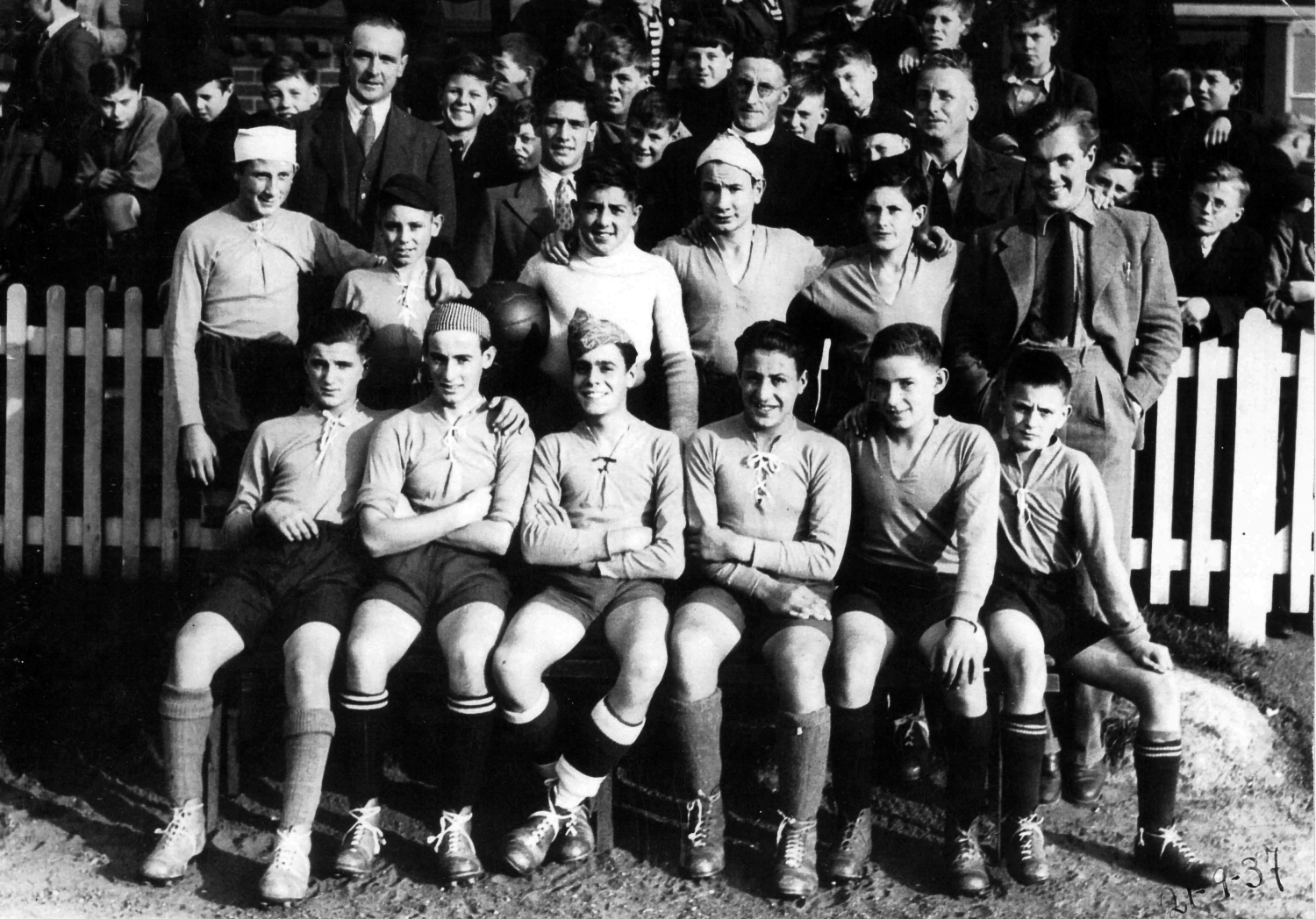
In the middle of September 1937, a group of about 50 boys from the Basque country of Northern Spain arrived at the Old Rectory in the small Norfolk village of Rollesby.
At the time the Old Rectory was a disused building without electricity, but it was definitely an improvement on the field they had been camping in at Hoxne, near Diss across the border in Suffolk, where they had been flooded out in late August.
Like many boys of their age (9-16) they loved football and spent most of their spare time playing. But how had they ended up in Norfolk?
In March 1937 the Spanish Civil War raged. General Franco, leader of the Fascists who were fighting the Republican Government of Spain, ordered an attack on Northern Spain.
A month later, on April 26th Guernica, the spiritual home of the Basques became the first town in history to be destroyed by aerial bombing, carried out by the German Condor Legion killing around 1,600 and injuring about 900. The atrocity was immortalised in paint by Picasso. The horror also prompted the first mass evacuation of children from a war zone with between 20,000 and 30,000 kids sent away to safety – some to Belgium and France, others to the Soviet Union and 4,000 to Britain.
The British government initially refused to have refugees (no change there then). PM Stanley Baldwin had claimed that ‘the climate wouldn’t suit them’ but he relented after huge public pressure. The proviso was that charities had to finance their stay.
The 4,000 children, aged five to sixteen and accompanied by teachers and priests, arrived in Southampton on 23rd May 1937 on a converted liner designed for only 400 passengers, the SS Habana. To make things even less comfortable, their journey involved navigating a storm to rival Ciara or Dennis.
From the chaos and overcrowding of the boat the Basque children were moved to a tented camp at North Stoneham and from there dispersed around the country.
Among the 4,000 were the Gallego brothers, José and Antonio who would go on to play football for a variety of League clubs including Norwich City – and Emilio Aldecoa who played a single game for Great Yarmouth Town before his footballing career took him to Wolves, Coventry, Athletic Bilbao, and Barcelona, where he gained a champion’s medal, as well as an international cap for Spain. He returned to England in 1960 to coach Birmingham City where he was assistant manager for two years.
The talent didn’t end there. Raimundo Peres Lazama played for Southampton in 1940 before returning to Spain where he played for Athletic Bilbao, winning the double in the 1942-3 season and retaining the Copa del Generalissimo (the equivalent of the FA Cup) in 1944 and 45.
Sabino Barinaga spent a season playing for Southampton Reserves, scoring an impressive 62 goals, before going on to play for Real Madrid, where he won three major trophies. Baringa also holds the honour for scoring the first goal at the Santiago Bernabeu stadium in 1947.
Following some negative national press reports about the behaviour of some of the boys in North Stoneham, Poppy Vulliamy brought 50 of the older boys to camp, in Hoxne at Oakley Park near Diss, among them future Barca star Aldecoa.
Poppy allowed the boys to elect their own parliament and keep their own discipline, leading to the formation of a government, made up of a President and five ministers, each elected fortnightly. The boys were left wing (according to Poppy and the Yarmouth Independent) and adopted a dog, called Reddy.
Learning from their earlier experiences, Poppy ensured that good relationships were built with the village and the group quickly allayed rumours that the villagers were ’scared stiff of them’ by inviting local people to meet them in person.
From Hoxne, the group moved into the Old Rectory at Rollesby in Mid-September following a visit to Great Yarmouth where they were given the ‘freedom of the Pleasure Beach’, taken to the Hippodrome Circus, had tea with the mayor and mayoress and then went to a swimming gala.
From there, villagers were encouraged to invite the boys to their homes every Sunday and good relationships were formed. Locals from the area invited over 20 boys back to Rollesby and Yarmouth for a few days of the Christmas holidays
The boys had already played a number of football matches where, according to the Diss Express, they beat Hoxne twice and came out best in a third game where they won 3-2 in a ‘thrilling struggle.’
They also played Brome and Oakley: ‘With the lead it was only natural that the Brome and Oakley 11 should give of their utmost to maintain it, and likewise the lads from the land of the olive to strain their footballing souls to get on terms’. The Basques won after 10 minutes of extra time.
Their final game in Suffolk was played in very wet conditions against Brome and Oakley at the Rectory ground. They lost 6-2. ‘The larger pitch and heavy ball affected the play of the Basques, who were unable to get going with the short passes for which they are renowned.’
In their two months at Rollesby the boys played numerous games against the local villages and some of them were described in the Yarmouth Independent:
‘On Saturday morning they visited the cinema at Yarmouth, and on Saturday afternoon travelled to Flegg Burgh for their return football match. Burgh, anxious to avenge their 13-0 defeat by the Basques a fortnight ago, fielded a strong team and on their own mud-patch, the scene of the defeat of the hopes of a good many visiting teams – they turned the tables on a weakened team and despite the splendid efforts of the diminutive goalie Burgh netted 5 times and the Spaniards once. This Saturday the Basques are playing at Winterton.’
The boys’ football impressed local observers with one journalist noting: ‘Their canny footwork is the result of the Spanish rule banning shoulder charging. Jose Luis Bilbao is a marvellous goalkeeper for his age and an eye is being kept on him with a view of making him a professional’.
Taking note, Norwich City manager Bob Young donated a ball and blue kit to the boys and although there’s no record of the boys attending any City matches it’s known that Poppy occasionally took some of them into the city and had them run errands for her.
Certain stereotypes of English (muscular and big and used to muddy conditions) and Spanish (skilful, canny footwork, short passing) football emerge and in one report describing a loss of 4-3 to a Filby team: ‘The standard of the Spaniards’ football was far higher than that of Filby, who were stronger and heavier than the foreign lads’ which suggests that brute strength and size overcame Spanish skill.
The highlights of their football in Norfolk were the two games against Yarmouth at Wellesley Road, both of which were watched by crowds of over 1,000.
The first match in October was 8-2 to the Spaniards with Francisco Peres scoring 6. ‘The Basque boys, playing in blue shirts given to them by Norwich City had brought with them not only 30 refugees but a large part of the village of Rollesby as supporters.’
In the second match on Boxing Day they beat Yarmouth schoolboys 9-0. Emilio Aldecoa played both these games on the left wing.
The boys left Rollesby for Tythrop House in Buckinghamshire on 23rd November. The Yarmouth Independent describes ‘all the emotionalism of a Spanish leave taking…happily most of them were able to call “until Christmas” instead of “goodbye” for most of the boys will be enjoying the festivities with local families.’
A Yarmouth man, Mr Dawson reflected on their visit in January 1938. “Some people thought ‘we were harbouring desperadoes and running a risk of being murdered in our beds. Another strange attitude of mind is that which resents friendship being shown to a ‘foreigner’, which exhibits a lack of appreciation of the dreadful circumstances, which brought these children among us.”
Sadly, of course it’s an attitude that some people still hold today.
Mr Dawson continued: “There is a nicer side. A shoe repairer refused, almost with indignation to accept a payment for a job done and an equally sympathetic barber, when told the reason for a boy’s blank look to his ‘trim up or a close crop?’ declined to accept his fee. Antonio, who has five brothers, said how one of his brothers returned home from the fighting and ‘spoke with sadness at having shot a fellow country man – the tragedy of civil war’. The boys all believe intensely about the rightness of the cause in which their relatives are fighting and several of them have themselves been in the firing line. One of the three who left here last week was in the trenches for months and wounded before his age was discovered.”
Mr Dawson knew that their parents didn’t want them home but he had thought it was because of the bombing. “From Antonio I learned another reason ‘For one day, yes –but there is no food’. There was also an influx of refugees from the countryside in Bilbao …(which led)…. to an acute shortage of food and that ‘nothing could be spared for the dogs and that one belonging to a friend of his killed a cat and partly devoured it. For some weeks before he left home donkeys and cats formed part of the food of the people.” On a lighter note Antonio’s description of Christmas at home was ‘plenty wine, all drunk, me drunk’.
Most of the refugees had returned home by late 1939 when the Second World War broke out but about 400 remained in Britain, including Emilio Aldecoa, who, while visiting friends, had played a game for Yarmouth against Eastern Coach Works in May, and the Gallego brothers. It is to their story that we now turn.
The Gallego brothers, José and Antonio ended up in a children’s home in Cambridge. The brothers became known as Tony and Joe, noting: ‘The English weren’t very good at pronouncing our names’, when Antonio was interviewed about his life in 2012 by Naomi Westland for Spanish Daily, El Pais.
He recalls his mother putting him and his brother Jose in an orphanage after their house was bombed. ‘Leaving Bilbao was a sad occasion. But things were so bad I think our mother was just pleased to get us out alive.’
They were reunited with their mother and their younger sisters in 1947. ‘My mother always begged us not to go into politics. Our dad was a socialist, very active, very strong minded,” says Gallego. For many years after he disappeared, the family didn’t know what had happened to him. ‘We only found out later that he had been killed at Gernika (sic) but we don’t know how and we never had a funeral for him. We never got his body. Things were too upside-down to do anything like that.’
He says football played a big part in helping the children – the boys at least – traumatized by the war, to settle into a new country and a new language. ‘It was all we thought about. As long as we had football, we were happy,’ he says.
“Football meant everything to us; it was the only thing we knew about,” Antonio continued: “We got attached to Cambridge and made a lot of friends here through playing football. If it hadn’t been for football, we would have lived a very different life.” They joined Cambridge Town and were spotted by league clubs – José was the more skilful and played for Brentford, Southampton and Colchester United, before returning to Cambridge United.
Antonio was a goalkeeper (and at 5 feet 9 inches, not a tall one). He played one game for Norwich City in the 1946-47 season, the first full football programme after the wartime interruption. Norwich were in the Third Division South at the time and finished 21st out of 22 with 28 points, forcing them to apply for re-election to the league. Thankfully this was proposed by Mr Blenkinsop of Leeds United (we have something to thank them for) and the club were reprieved.
Home attendances that season fluctuated between 11,000 and 29,000 (against Port Vale) with Cardiff City away attracting 36,000 (they were champions on 66 points). We scored 64 goals, but conceded 100 and used 35 players. Canary Citizens credits Cyril Spiers, for bringing in young players and developing a youth policy; ‘but one is left with the impression that he did not handle his senior players too well.’
As for Antonio, he was signed from Cambridge Town on 12th March 1947 and played on March 15th against Bristol Rovers in front of more than 18,000 at Carrow Road. According to the match report it was an exciting 3-3 draw with City coming back from a 3-1 deficit at half time and ending Rovers’ five match winning sequence.
One match report noted that Antonio: ’shaped promisingly and showed no disinclination to come out when necessary. The occasion made a big demand on a player who had never appeared in anything higher than senior amateur ranks…. though he should have saved when the third goal was scored’. Another report said: ‘he did not set the Wensum on fire but he will develop with experience’ – at least it wasn’t a Michael Theoklitos experience.
Sadly, Antonio never played for City again and was probably released at the end of the season to return to regional amateur football. He and Jose played football into their fifties, living in Cambridge to the end of their lives.
Jose made a living reading meters for the Gas Board and Antonio was a sweets and cigarette salesman. Their football story is very different from that of footballers today but at Norwich we have our own refugee, Mario Vrancic whose family escaped from Bosnia and then Croatia, finding refuge in Germany in 1994.
In this story we see the power of football to bring people together and among the Basque boys, witnesses to horrific events and torn away from their parents at such a young age, the power to help them get by, to heal and to make new friends. We also see how Norfolk people took them to their hearts and showed them hospitality inviting them back to stay over the Christmas period.
- The Gallego family
- Tony Gallego – EDP
- Tony and Jose Gallego – Probably Cambridge Local Press
- Aldecoa – Sporting Intelligence 2011
- Basque Boys in Great Yarmouth – This photograph from the late 1930s forms part of the BCA’37UK archive and is used and held in good faith. It is not always possible to identify the copyright holder, if any.
Afterword
I carried out this research for The Havens East Project.
Havens East is investigating the lost histories of child refugees who sought sanctuary in East Anglia during the Spanish Civil War. It aims to uncover the stories of the children, who were from the Basque region of northern Spain, and the local volunteers in Cambridgeshire and Norfolk who worked tirelessly to help them.
Activities will take place across the region with specialist teams working with citizen researchers, local schools, refugee groups and heritage supporters, including Basque Children of 1937 Association (UK). As part of Football Welcomes Refugees (April 2020), the project will recreate an historic football fixture.
The Basque Boys beat a local Great Yarmouth Boys XI 8-2 at the Wellesley Ground, Great Yarmouth on 21 October 1937, and then triumphed 9-0 in a rematch played on the same ground on Boxing Day 1937.
Havens East is funded by the National Lottery Heritage Fund and based at Anglia Ruskin University, Cambridge.
The headline image is used with kind permission of the University of Southampton Special Collections.
- New Routes, Old Routes
- Norwich Schools of Sanctuary
- https://www.basquechildren.org/
- Amnesty International; When football welcomed refugees
- El Pais
- Canary Citizens, Eastwood and Davage
- EDP archive
- Yarmouth Independent
- Diss Express
ADI-NODGE BADGE - *SALE PRICE*
VINTAGE CANARY BADGE - *SALE PRICE*
FORZA NODGE BADGE - *SALE PRICE*
Comments
It's All In The Mind. Now Or Never Nodge.
20/02/20
Paul Buller applies some real world psychology and his own hypothesis, on what it will take for City to mount some sort of bid to get back to what they were last season....
Wolves (a) - The Review
24/02/20
Another day to forget, in a season which will probably be largely forgettable. Terri Westgate, Richard O'Neill and Maddie McKenzie decided to review it on the car journey home. They weren't happy badgers....

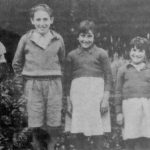
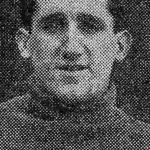
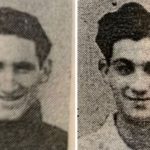
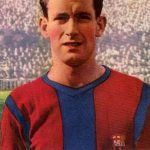
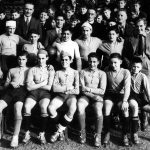
Great article Paul and welcome.
Ed, who you know, is hopefully visiting my school near Colchester soon, as we looked after some of the refugees too.
Sure you know, but worth mentioning to readers Great British Railway Journeys (available on iPlayer) from a few weeks back, that looked at the refugees in East Anglia.
Shamefully, if this happened now, I doubt our current Home Secretary would allow these desperate children to set foot on UK soil…
Great research, fascinating story, fantastic article.
Hi
I really enjoyed reading this article. Only yesterday I’d written a quickly assembled blog post about Aldecoa to coincide with Wolves game agaist Espanyol. See it here:
https://the-saturday-boy.blogspot.com/2020/02/wolves-basque-refugee-story-of-emilio.html
I had heard that Aldecoa played for Yarmouth, and its great to read the story of how he came to be there. Good luck with the match, research and other activities – it sounds really interesting.
And, if you want any of the primary info I found for my blog post, i’ll be happy to forward it onto you.
Paul
Hi Paul,
Just read your blog post. Great stuff. Excellent research on Aldecoa – very interesting. I could only find one appearance for Yarmouth, when he returned to visit friends in May 1939. Interested to see that Jose Luis Bilbao played for Coventry with Aldecoa. He was at Rollesby and played in the 2 matches against Yarmouth schoolboys, at least one of them in goal. Apparently he was short – maybe why he moved to the wing.
Thanks for the offer of primary info – I was thinking of expanding it a bit to include a bit of info on the moral panic so the Daily Mail article would be interesting. Also to talk a bit more about Poppy Vulliamy, a very interesting character who had lived in Spain – not for this website but my own.
If you think I’ve got any primary that you want (eg Yarmouth Independent articles) I can put them your way.
I am working on getting young men and women from Palestine on the back of a Foundation Fund to play in Norfolk football
Great piece of research and beautifully written. A message for our own time. Thanks for sharing.
Can only echo all the positives above. I caught football when my family passed through Norfolk for a few years in the 60s, so I have no personal back story on the county and all of this was completely new to me. I shall be sharing it with friends at tomorrow’s match at my local non-League club in the North East – they too appreciate what our beautiful game means.